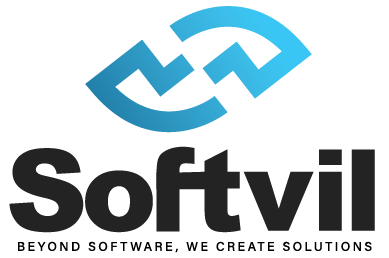The startup landscape is known for its fierce competition and high failure rates. To navigate these challenges and stand out from the crowd, startups often turn to experienced software development firms for assistance. These firms bring a wealth of technical knowledge and industry expertise to the table, enabling startups to build robust software solutions that can propel their growth and success. The article will delve into the various ways in which software development firms empower startups. Firstly, their technical expertise proves invaluable in designing and implementing a solid technical foundation. From software architecture to coding best practices, these firms ensure that startups’ software products are built to withstand the demands of the market.
Building a Solid Technical Foundation
To ensure a solid technical foundation, startups can rely on the expertise of software development firms. These firms bring a wealth of technical knowledge and experience to the table, allowing startups to benefit from their specialized skills. By harnessing the technical expertise of software development firms, startups can build a solid technical foundation for their software solutions. The firms’ knowledge in software architecture, design considerations, coding best practices, and development methodologies helps startups make informed decisions and ensures efficient and effective software development processes.
Harnessing the technical expertise of software development firms:
Software development firms have a deep understanding of the latest technologies, programming languages, and frameworks. They can provide valuable insights and guidance to startups in selecting the most appropriate technologies for their specific needs. Leveraging their expertise, these firms can assist startups in making informed decisions about the technology stack, development tools, and infrastructure required for their software solution.
Software architecture and design considerations for startups:
Software development firms help startups design a scalable and efficient software architecture. They analyze the startup’s requirements, consider factors such as performance, scalability, and future growth, and devise an architecture that meets those needs. This includes determining the optimal system components, data storage methods, communication protocols, and integration points. By designing a well-thought-out architecture, startups can avoid costly rework or performance bottlenecks in the future.
Coding best practices and development methodologies for efficient software development:
Experienced software development firms are well-versed in coding best practices and development methodologies. They follow industry standards and employ efficient coding practices that ensure maintainable and high-quality code. These firms promote modular and reusable code structures, code documentation, and version control practices. Additionally, they implement agile development methodologies, such as Scrum or Kanban, to enhance collaboration, visibility, and project delivery efficiency.
Accelerating Time to Market

Startups often face the challenge of bringing their products or services to market quickly to gain a competitive edge. Software development firms can assist in accelerating time to market through streamlined processes and efficient project management.
Streamlining the development process with agile methodologies:
Software development firms employ agile methodologies such as Scrum or Kanban to streamline the development process. These methodologies emphasize iterative development, collaboration, and continuous feedback. By breaking down the development cycle into smaller, manageable tasks or sprints, startups can achieve faster delivery of incremental features or updates. Agile methodologies enable startups to adapt to changing requirements, prioritize tasks effectively, and ensure efficient utilization of resources.
Efficient project management and resource allocation:
Software development firms bring expertise in project management and resource allocation. They help startups create realistic project timelines, set achievable milestones, and allocate resources efficiently. This includes assigning skilled developers, designers, and testers to appropriate tasks based on their strengths and expertise. By managing resources effectively, software development firms ensure that projects progress smoothly and on schedule, reducing the risk of delays or bottlenecks.
Minimizing delays and cost overruns in software development:
Software development firms understand the importance of minimizing delays and cost overruns. They implement processes to identify and address potential roadblocks early on. Regular communication and transparency between the startup and the development firm help in mitigating risks and resolving issues promptly. Additionally, experienced firms have established quality assurance practices in place, which help detect and fix bugs or technical issues during the development process, minimizing delays caused by rework or debugging.
Scaling for Growth

As startups experience growth and increased demand for their products or services, it becomes crucial to have scalable software architectures and strategies in place. Software development firms can assist startups in scaling their operations effectively and preparing for future growth.
Designing and implementing scalable software architectures:
Software development firms help startups design and implement scalable software architectures that can handle increasing demands. They analyze the startup’s growth projections, anticipated user base, and performance requirements to create architectures that can accommodate higher workloads. This includes designing systems with distributed components, load balancing mechanisms, and horizontal scalability. By incorporating scalability into the software architecture from the beginning, startups can avoid major rework or system failures as their customer base expands.
Planning for future growth and increasing demands:
Experienced software development firms work closely with startups to understand their long-term goals and vision. They collaborate to develop roadmaps and strategies that align with the startup’s growth plans. This involves anticipating future demands, such as increased user traffic or data volume, and planning for the necessary infrastructure upgrades or system enhancements. By proactively planning for growth, startups can ensure smooth transitions and avoid disruptions as their operations scale.
Flexibility in software design to accommodate evolving business needs:
Software development firms emphasize flexibility in software design to accommodate evolving business needs. They understand that startups often pivot, refine their offerings, or expand into new markets. By employing modular design principles and flexible architectures, software development firms enable startups to adapt their software solutions to changing business requirements. This flexibility allows startups to incorporate new features, integrate with third-party services, or modify workflows as their business evolves.
Ensuring Quality and Reliability

Quality and reliability are crucial factors for the success of any software solution. Software development firms play a vital role in implementing processes and practices that ensure high-quality and reliable software products.
Implementing rigorous testing and quality assurance processes:
Software development firms have expertise in implementing rigorous testing and quality assurance processes. They conduct various types of testing, including unit testing, integration testing, and system testing, to identify and resolve any defects or issues in the software. Through comprehensive testing, startups can ensure that their software meets functional requirements, performs as expected, and provides a seamless user experience. Quality assurance practices also involve adhering to coding standards, code reviews, and continuous integration to maintain code quality and consistency.
Optimizing software performance and user experience:
Software development firms focus on optimizing software performance and user experience. They employ techniques such as performance testing, load testing, and user acceptance testing to assess the software’s performance under different conditions. By identifying and addressing bottlenecks or performance issues, firms help startups deliver a high-performing software solution that meets user expectations. They also prioritize user experience by conducting usability testing, gathering user feedback, and iterating on the design and interface to create an intuitive and engaging user experience.
Addressing bugs and issues promptly for a robust software solution:
Software development firms understand the importance of promptly addressing bugs and issues in the software. They establish processes for bug tracking and issue resolution, allowing startups to report and prioritize issues effectively. By addressing bugs promptly and providing timely updates or fixes, firms help startups deliver a robust and reliable software solution to their users. This proactive approach ensures customer satisfaction, enhances the reputation of the startup, and minimizes the risk of negative user experiences or reviews.
Seamless Integration and Compatibility

Seamless integration and compatibility are essential for startups to ensure that their software can work harmoniously with existing systems and leverage the capabilities of third-party platforms. Software development firms play a crucial role in enabling smooth integration and ensuring data flow and interoperability.
Integrating software with existing systems and third-party platforms:
Software development firms possess expertise in integrating software with existing systems and third-party platforms. They analyze the startup’s requirements and identify the necessary integration points. By leveraging technologies such as APIs (Application Programming Interfaces), middleware, or integration platforms, these firms facilitate the seamless exchange of data between the software solution and other systems or platforms. This enables startups to leverage existing infrastructure and services, enhancing the functionality and value of their software.
Enabling data flow and interoperability between software components:
Software development firms focus on enabling smooth data flow and interoperability between different software components. They design and implement data models, communication protocols, and standardized interfaces that promote interoperability. This ensures that various components of the software can exchange data seamlessly, facilitating efficient workflows and collaboration between different modules or systems within the startup’s software ecosystem. By enabling data flow and interoperability, software development firms help startups achieve a cohesive and integrated software solution.
Leveraging APIs and services for enhanced functionality:
Experienced software development firms leverage APIs and services to enhance the functionality and capabilities of startups’ software solutions. They identify suitable APIs or services that can augment the startup’s offering or provide additional features. By integrating these APIs or services, startups can leverage functionalities such as payment gateways, geolocation services, social media integration, or data analytics tools. This expands the capabilities of the software and enhances its value proposition, enabling startups to provide a more comprehensive and competitive solution to their users.
Post-Launch Support and Maintenance

Post-launch support and maintenance are critical for startups to ensure the smooth functioning and continuous improvement of their software solutions. Software development firms offer valuable assistance in this area, providing bug fixes, updates, and feature enhancements while allowing startups to focus on their core business activities.
The importance of ongoing support and maintenance for startups:
Ongoing support and maintenance are vital for startups as they encounter new challenges, user feedback, and evolving market demands. Software development firms understand the importance of addressing these needs promptly to maintain the functionality, performance, and security of the software. By providing ongoing support and maintenance, startups can resolve issues efficiently, stay ahead of potential problems, and deliver an exceptional user experience. This level of support also instills confidence in users, enhances customer satisfaction, and contributes to the overall success and growth of the startup.
Bug fixes, updates, and feature enhancements for a responsive software solution:
Software development firms assist startups by promptly addressing bugs and technical issues that arise after the software’s launch. They implement processes for bug tracking, issue resolution, and regular software updates to address vulnerabilities, improve performance, and introduce new features or enhancements. By proactively resolving issues and providing regular updates, firms ensure that the software remains responsive and adaptable to changing user needs and market trends. This responsiveness allows startups to stay competitive, retain users, and seize opportunities for innovation.
Conclusion
Experienced software development firms provide startups with the technical expertise, streamlined processes, and support necessary to navigate the complexities of software development and drive success. Collaborating with such firms empowers startups to focus on their core business, deliver high-quality software solutions, and adapt to market demands, ultimately fostering growth and competitive advantage.

